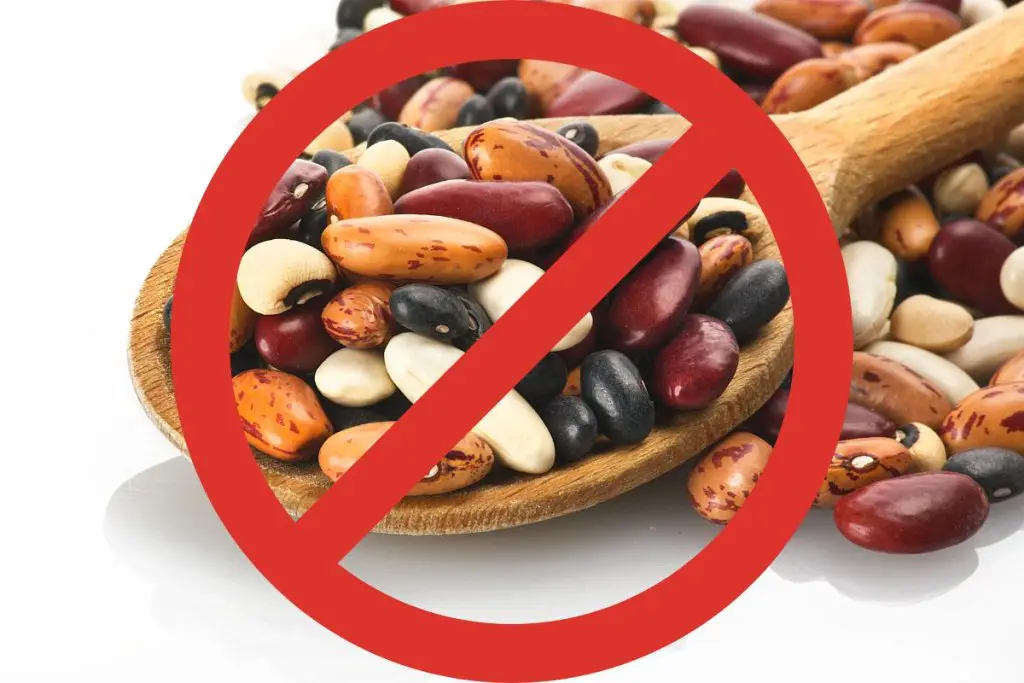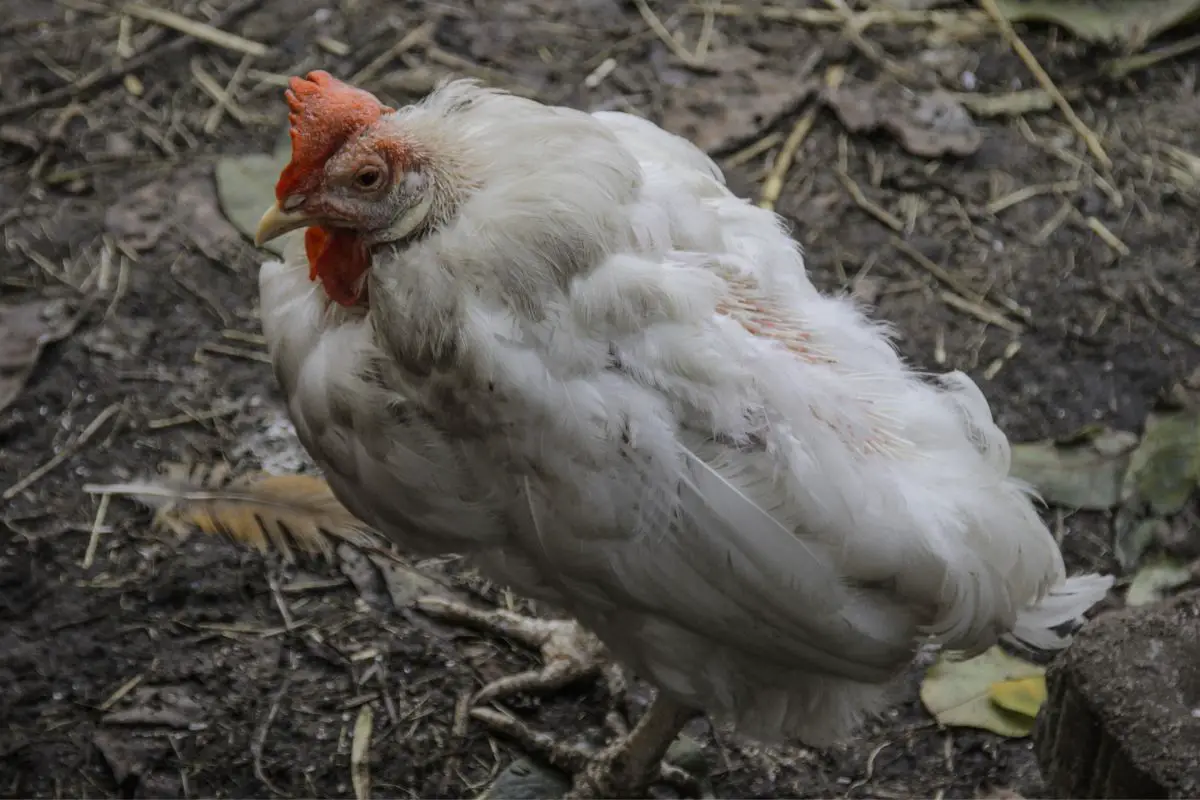There are numerous foods that chickens cannot eat which can lead to severe illness or death. Some foods are almost instantly fatal such as dried beans, and some - like avocado - are quite surprisingly dangerous too.
Chickens are omnivores and would happily eat just about anything you offered them. It may be tempting to throw kitchen scraps into their chicken coop, but there are several foods that can seriously hurt or even kill them that are better off being tossed into a compost pile or a waste bin.
In this article, we will discuss the types of foods that should never be given to your flock and discuss why each of these foods is so dangerous for backyard chickens.
Table of Contents
What are the Most Dangerous Foods for Chickens?
This list of foods is incredibly important for all homesteading families to know. None of these foods should ever be fed to chickens:
1. Dried Beans
Dried beans should never be given to chickens as they are always fatal. Beans contain a toxin called hemagglutinin that is only removed when properly cooked.
Just a couple uncooked beans will cause your chickens to die, and you cannot save them. Death often occurs in the first hour after consumption.
For this reason, keep your chickens away from bean plants, and don’t store dried beans anywhere that chickens may gain access to them.

To properly cook beans, they must first be soaked in water for a minimum of 5 hours (or overnight to be safer). This soaking water needs to be thrown away and replaced with fresh water and after that they must be brought to a boil for at least 30 minutes to remove the toxins.
Slow cooker beans and beans that are cooked at low temperature over a longer time are not safe for chickens to consume because a sustained high temperature is required to kill the toxins.
2. Green Potatoes
White potatoes that have been improperly stored or have gotten sun exposure will have the peel of the potato turn green. Green potato peels are a sign that the potato is now toxic and contains solanine.
Potatoes are members of the nightshade family and many of the plants of this family are deadly to chickens because parts of the plant contain or are turned into solanine when ingested. Several foods of the nightshade family are on our list because chickens should never eat them.
If you feed chickens raw potatoes they can also contain solanine, so always cook potatoes before offering them to your chickens as table scraps.
Other key things to look for other than green potato skins is sprouting, eyes, and deep cuts. All of these are indicators that solanine is present and should not be consumed by chickens (or people for that matter) so throw them away.
3. Avocados
Avocado skin and avocado pits contain persin which is toxic to chickens and can cause breathing issues, paralysis and death within a few days of consumption.
Avocado flesh contains smaller amounts of persin, and has become a source of division amongst chicken flock owners.
Some of them say that in small amounts, the flesh is safe and they haven’t observed negative side effects, but others say that even if the results aren’t observable, doesn’t mean harm isn’t being done.
To be safe, avoid giving chickens any part of the avocado.
4. Tomato Plants and Green Tomatoes
Another nightshade family plant, both the leaves and stem of tomatoes as well as unripe green tomatoes are toxic to chickens because of solanine.
Tomato flesh of ripened tomatoes on the other hand, is fine to offer chickens in moderation as a healthy treat.
5. Chocolate and Coffee Grounds
Caffeine is present in both chocolate and coffee grounds and should never be fed to chickens as caffeine is toxic to chickens.
Chocolate also contains theobromine which is toxic to chickens as it causes serious issues with the heart. Birds that ingest a large amount of theobromine often die within 24 hours.
The higher the amount of cacao in the chocolate, the worse it is for your flock.
Save that coffee and chocolate chip cookies for yourself!
6. Apple Seeds and Apple Cores
Chickens love apples, and while it is perfectly fine to offer the flesh and even the skin of apples, you can never give them the apple seeds because they contain cyanide which is deadly for chickens.
Apple cores should also not be offered because they may contain hidden apple seeds, and the cores are very tough for chickens to eat without choking.
Do your flock a favor and only offer the tasty, safe parts of the apple instead!
7. Eggplant Leaves
Eggplants are part of the nightshade family and the leaves of this plant (as with most other nightshade vegetables) is poisonous to chickens because it contains solanine.
8. Rhubarb and Rhubarb Leaf
Both rhubarb and rhubarb leaf are highly toxic to chickens because they contain oxalic acid.
This acid is more concentrated in the rhubarb leaves but is still present in lower amounts in the stalks of rhubarb. If ingested, it can cause liver and kidney problems including jaundice and kidney failure so always steer clear of rhubarb.
9. Cherry Pits
Cherries themselves are perfectly fine to offer chickens in moderation and contain many health benefits. However, the pit of cherries should never be fed to chickens (nor the stem) as both contain cyanide.
10. Wild Mushrooms
While commercially grown mushrooms are safe for chickens to eat, wild mushrooms may not be. Up to 20% of these mushrooms contain poisons that can kill chickens.
If you allow your flock to free range, be sure that there are no mushrooms growing in the areas they are allowed to roam. Completely remove mushrooms from the base of the stem up, just to be safe.
11. Onions
Onions are okay in tiny amounts but large quantities of onions should never be fed to chickens because it can cause anemia.
Anemia leads to heart problems and affects the red blood cells of chickens, so steer clear and offer safer choices such as cucumber or watermelon instead.
12. Citrus Fruits
Citrus doesn’t contain toxic compounds for chickens, but many chicken owners would never give citrus rind to their chickens because citrus can lead to softer egg shells of laying hens.
Luckily, chickens tend to not like acidic foods like this, and the peels and rinds of most fruits and veggies aren’t appealing because they don’t taste good and are too hard for their beaks to handle.
13. Processed and Salty Foods
Sodium can cause severe dehydration in your chickens and you should never feed highly processed or seasoned foods into your chicken’s diet.
Chickens should eat natural foods that they would find while being free range and foraging, not what you’d find in the junk store aisle at the grocery store.
If you feed healthy foods instead, your chickens will in turn be healthier, live longer, and produce better eggs and meat.
14. Moldy Foods
In addition to all of the foods we listed above, you should never feed moldy food to your chickens.
Mold is toxic and harmful for chickens (aside from the mold on certain cheeses which contains penicillin).
You should also keep an eye on the layer feed that your chickens eat to ensure no mold is present so you aren’t poisoning your flock. Always store chicken feed in air-tight containers and never in a moist environment.

